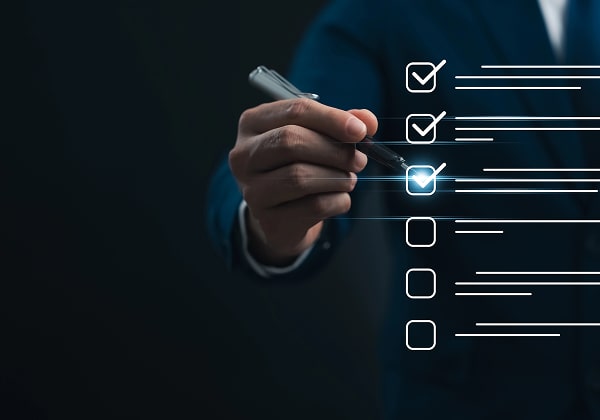Overview & Setup
Google Local Services Ads place your firm at the very top of search results and connect you with ready‑to‑hire clients on a pay‑per‑lead basis rather than the traditional pay-per-click. Ads display your reviews, business hours, and the Google Screened badge, giving prospects immediate confidence to call or message. For U.S. firms, it functions like a verified, high‑intent storefront attached to your name in search.
Getting Started
- Start by setting up your Google Business Profile and making sure it’s verified. This is your foundation, so double-check your details; accurate info here helps people find you when they need legal help.
- Next, go through the Google Screened process. This step helps build trust with potential clients by showing you’ve passed Google’s background checks and license verifications.
- Pick your practice areas and the locations you want to serve. Be specific—whether you handle family law, criminal defense, or personal injury, and which cities or regions you cover. The more precise you are, the better your leads will fit your firm.
- Set your weekly budget for leads and decide how you want to handle new client inquiries. Google lets you control how much you spend and how you connect with potential clients, so adjust these settings to match your firm’s needs and schedule.
- Stay on top of calls and messages as they come in, and keep an eye on your reviews in the LSA dashboard. Fast responses and positive feedback can help you stand out and attract more clients, while gaining favortism from Google’s algorithms.
When Google Local Services Ads Appear For Lawyers
Google LSAs show up when someone searches for legal help nearby, searches like “Family lawyer near me” or “personal injury attorney in Phoenix.” Your location, practice area(s), business hours, and the quality of your profile all come into play. Proximity matters, but speed is the real game-changer. If you pick up calls and respond to messages without delay, Google takes notice and rewards you. Law firms that consistently jump on leads get bumped up in the results. The message is clear: quick response isn’t just good service, it’s your ticket to showing up in front of clients who are ready to hire right now.
What Shows On A Lawyer LSA Profile
A Google Local Services Ad profile is designed to present potential clients with the key information they need before reaching out. While Google tightly controls the profile’s layout and options, every detail that appears carries weight.
- Firm name, Google rating, and review count: Reviews come directly from your Google Business Profile. The average star rating and total number of reviews are displayed prominently at the top of your ad page.
- Professional Headshot: Typically featuring the lead attorney, this photo adds a personal touch to the profile.
- Google Screened badge: Only firms that pass Google’s background and license checks display this badge, which serves as a key trust indicator for legal listings.
- Business hours & service areas: Clearly listed hours and verified geographic coverage (by county, city, neighbourhood, or even ZIP code) help filter out inquiries from outside your jurisdiction.
- Years in business: Google calculates this automatically using your verified business information, adding another layer of credibility.
- Highlights: You can choose attributes such as “Free consultation,” “Speaks Spanish,” or “Virtual appointments,” which appear directly on your ad and can influence conversion rates.
- Attorney, staff, or office photos: High-quality images of your team or office make your listing more approachable and personable.
Attorney Profiles In LSAs
In addition to the firm details, Google allows you to list individual attorneys within your Local Services Ad. Each profile can show the lawyer’s name, photo, years of experience, education, and languages spoken, all tied to their verified bar license. For solo practices, this means your personal profile is the ad. For multi-lawyer firms, it gives potential clients a clearer view of who they might work with and adds a layer of trust beyond the firm name alone.
How Google LSAs Work
Google LSAs make connecting with potential clients refreshingly straightforward for law firms. Instead of juggling keyword lists and ad settings, firms only pay when someone reaches out by phone or message directly through the ad. You simply choose your practice area, desired case types, and service areas, and Google handles the rest, matching you with people who need your expertise nearby. Every interaction is tracked in a user-friendly LSA dashboard, giving your team a clear view of calls and messages. This setup lets you monitor performance, flag any concerns, and see exactly how your ad spend translates into real opportunities for your firm.
What Really Drives LSA Rankings For Lawyers
If you’re running Local Services Ads, placement isn’t random. Google looks at specific signals to decide which firms appear at the top. Here’s what matters most, in the order of highest priority:
- Google Screened Badge: No badge, no visibility. Passing Google’s license and background checks is the entry ticket for law firms.
- Proximity to the Searcher: Google connects people with firms close to where they are searching. The closer your office is to the users, the higher your odds of showing up. Proximity limitations can easily be overcome in markets where competing law firms are not doing all or some of these critical steps.
- Review Score & Volume: Strong ratings and a healthy number of reviews do more than build trust; they directly influence whether your ad surfaces, and whether the user chooses you over your competitors. Fresh reviews keep you competitive.
- Responsiveness to Leads: Answer fast, or Google will ding your ad. Firms that respond quickly to calls and messages are rewarded with higher placement, while slow responders slip down. Whether your responses or quick or slow, Google WILL take notice!
- Profile Completeness & Quality: Half-finished profiles don’t cut it. Verified hours, clear service areas, professional photos, and highlights like “Free consultation” all send positive signals.
- Business Hours Coverage: Availability matters. Firms open when clients are searching have a better chance of showing up, especially for urgent legal needs.
- Ad Budget: LSAs run on pay-per-lead. A higher weekly budget helps keep you visible in competitive markets once the other boxes are checked.
Benefits Of LSAs For Attorneys
LSAs connect lawyers with people who are actively searching to solve a problem that feels urgent, right at the moment they’re ready to take action. That timing transforms the quality of every conversation; these aren’t casual browsers, but individuals who are ready to pick up the phone and talk to an attorney. Because of this, being prepared to handle those calls quickly and professionally matters far more than clever ad copy. In this channel, your ability to respond promptly and effectively is what wins new clients, time and again.
Cost Control & Return On Investment
Lead prices can swing dramatically based on where you practice and how crowded your field is. If you’re in a major city like New York or Los Angeles, it’s not unusual to see leads costing up to $300 each. Meanwhile, if your firm operates in a smaller town or focuses on less saturated areas, like family law, leads can drop to $50 or even less.
What sets Google LSA apart is the control it puts in your hands. You choose exactly how much you want to spend, and you get a clear view of both your costs and the results your ads bring in. With this level of transparency, you can confidently adjust your strategy to match your goals and your budget.
Eligibility & Verification For Law Firm LSAs
Before your law firm’s ads can appear with Google Local Services Ads (LSA), you’ll need to clear a few checks. It’s not just red tape; Google wants to make sure people can trust the lawyers they find and hire right from these listings. That means your firm’s identity, attorney licenses, and business details all need to be accurate and up to date. The process is straightforward, but you’ll want to move quickly and make sure everything matches what’s on public record.
Verify Your Google Business Profile Information
If you want to run LSAs in the US, your Google Business Profile must be verified. Since late 2024, Google will pause ads if your profile is missing verification or if your details don’t match. Double-check that your firm’s name, address, phone number, and business hours are consistent across your Business Profile and LSA dashboard. Verification usually takes a few business days, so don’t wait until the last minute.

Complete Attorney Identity & License Checks
Using their current 3rd-party provider, Evident, Google will ask for identity verification for each attorney who appears in your ads. They’ll also check license status against State Bar websites. In some states, this process follows a set schedule through 2024 and into mid-2025. Keep your attorney roster up to date; if you have inactive profiles or outdated info, your ads might get blocked until everything’s sorted out.
LSAs VS. Traditional Google Ads
Both formats help people find counsel, yet they work in different ways. LSAs focus on service categories and generate calls. Search ads focus on keywords and drive PNCs to landing pages. Many firms use both to cover different types of demand and to stabilize lead flow through seasonality.
Pay Per Lead & Pay Per Click Compared
LSAs charge only when a prospect reaches out. Search ads charge for the click itself. That one change shifts risk away from the advertiser to a large degree. With LSAs, wasted spend on empty clicks is lower, though lead quality still needs active management. With search ads, copy, landing pages, and negative keywords do more of the filtering.

Placement Targeting & Intent Differences
LSAs sit at the top of the page and rely on categories and proximity. Search ads can reach broader research queries with keyword control. Intent on LSAs is usually higher because the next action is to call or message, not read a long page. Both formats can be shaped by location targeting and schedules.
When To Run LSAs Alongside Search Ads
Run both when case value justifies full coverage or when a single channel shows volatility. LSAs can carry urgent matters such as criminal defense and injury. Search ads can fill the pipeline with nuanced terms such as wrongful death lawyer or complex business disputes. Balance by practice, city, and intake capacity.
How AIA Helps Law Firms With LSAs
At Almost Illegal Ads, we manage LSAs end-to-end for US firms; our focus is accuracy, speed, compliance and ultimately ROI. The work we do blends profile craftsmanship with intake coaching and measured budget moves so firms go beyond vanity metrics to signed cases growth, the only metric that really matters.
Full-Service LSA Setup & Management
At AIA, we take the guesswork out of Google LSA for law firms. Our team handles every detail, from confirming your eligibility and building a compelling profile to fine-tuning your intake process and review system. We keep a close eye on your rankings every day, making real-time adjustments to your budget and ad schedule based on your city and practice area. With us, you get a true partner committed to helping your firm stand out and attract the right clients through Google LSA.
Intake Training & Lead Dispute Management
At AIA, we don’t just set up your Local Services Ads; we make sure your intake team knows how to turn those leads into real clients. We train your staff on how to handle first calls effectively, ask the right screening questions, and move prospects quickly to a proper consultation.
And when bad leads come in, you don’t have to waste time arguing with Google. Just flag them to us, and our team will handle the dispute process. We’ll work to get those charges refunded so your budget goes toward real opportunities, not dead ends.
Ready To Make LSAs Work For Your Firm?
Running Local Services Ads isn’t about flipping a switch; it’s about setting up every piece so the leads you pay for actually turn into clients. At AIA, we help you launch with confidence: your intake staff knows exactly what to say, bad leads outside your preset service areas and case type get disputed and refunded, and your ads stay visible in front of the clients you want most.
A quick strategy call is all it takes to get started. We’ll review your practice priorities, map service areas, and outline a launch plan that covers compliance, intake coaching, and ROI expectations: no wasted budget, no guessing, just a clear path to steady lead flow.
Book your readiness call today, and let’s get your firm to the top of Google LSAs where it belongs.
Frequently Asked Questions
How Can We Help Your Law Firm?
At Almost Illegal Ads, we specialize in comprehensive digital marketing solutions tailored especially for law firms. Select the services that best suit your needs and let us help you grow your practice.
Select all that apply:

